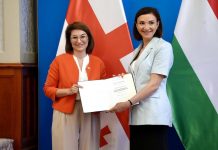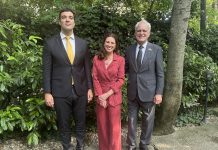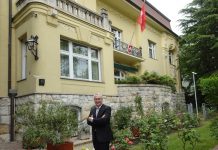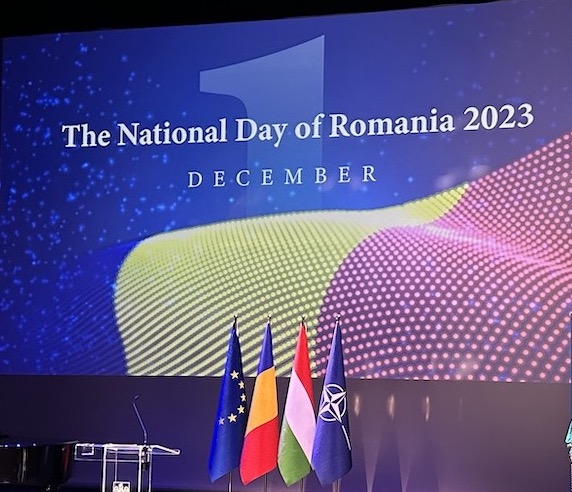Edited by Anna Popper
The National Day is a fundamental milestone in the history of Romania. It commemorates the Great Union of 1st December 1918, the birthday of a modern Romania and the right to self-determination of the Romanian people and is observed annually within the country and abroad.
To mark the 105th anniversary of Great Union Day, the Embassy of Romania in Budapest orchestrated a grand diplomatic reception and a captivating concert at the National Dance Theatre in Millenáris Park.


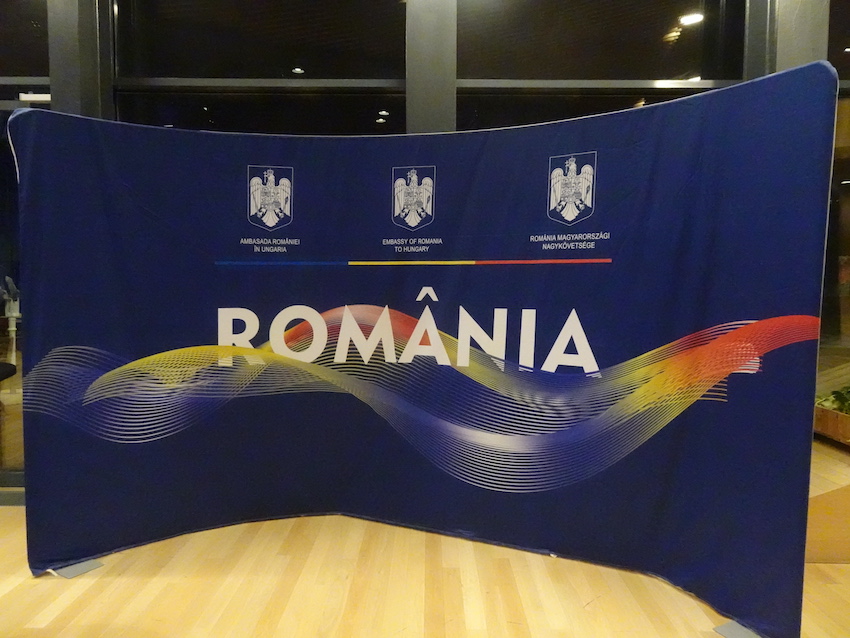
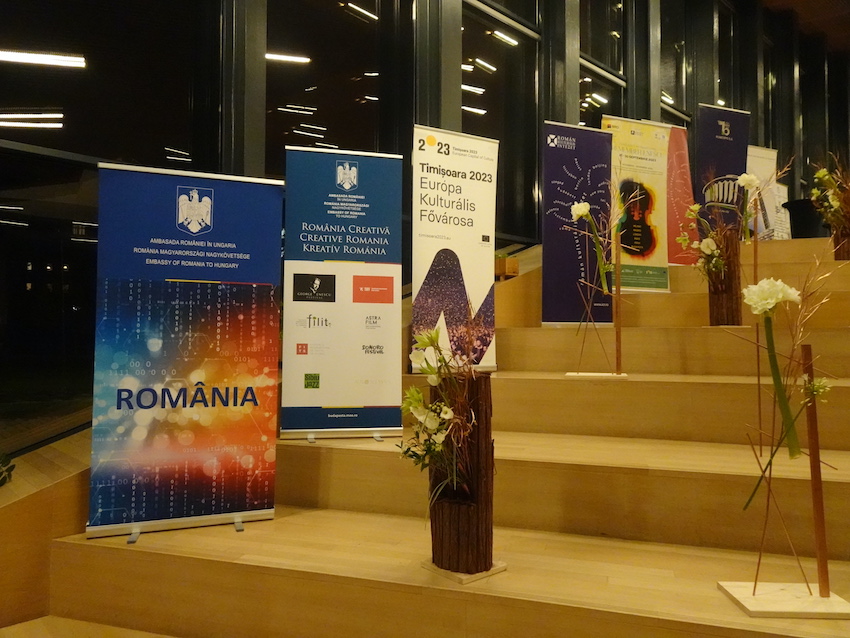

The event was attended by a large number of guests from diverse backgrounds, including members of the diplomatic corps, representatives from various spheres of the Hungarian social life and Romanian nationals residing in Hungary.
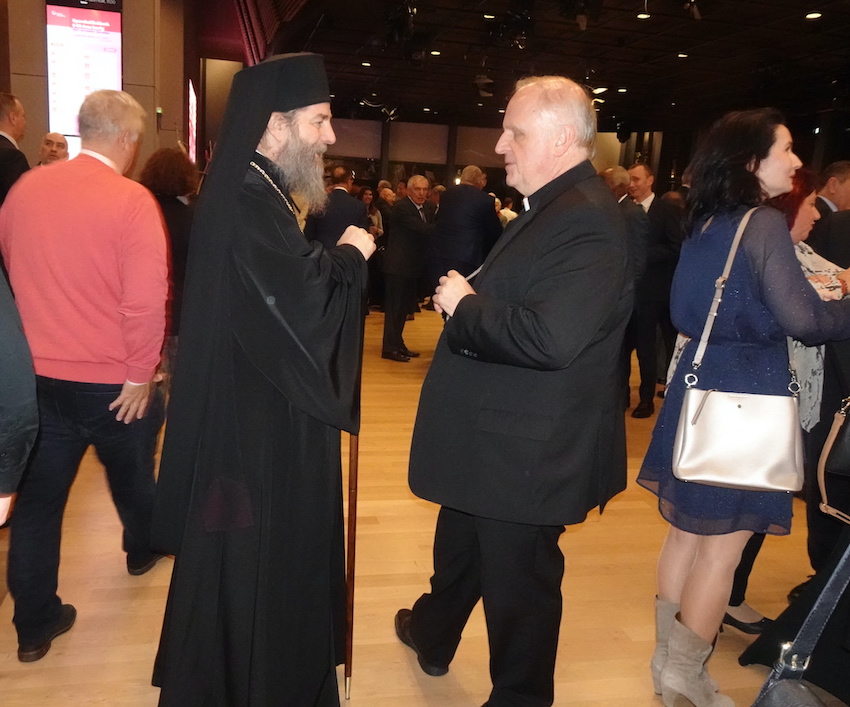
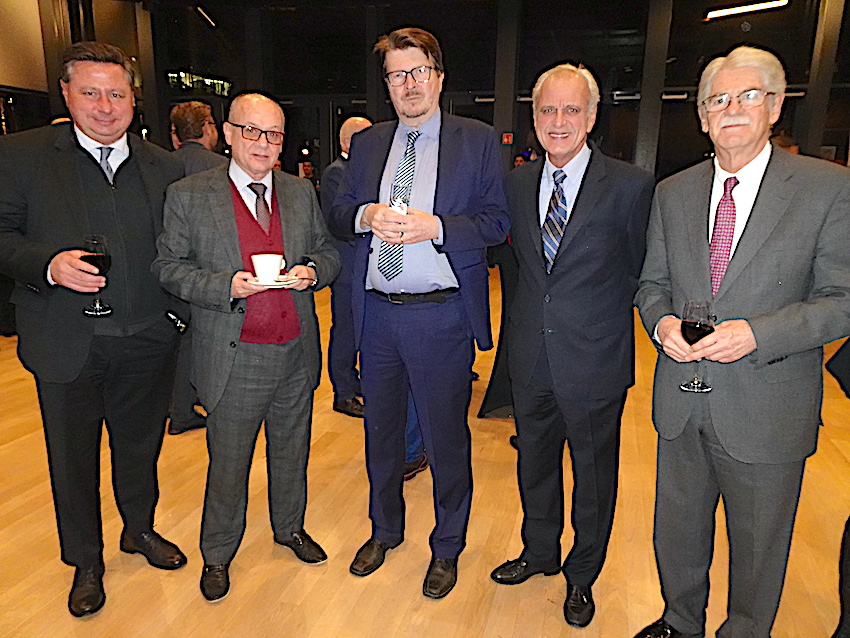


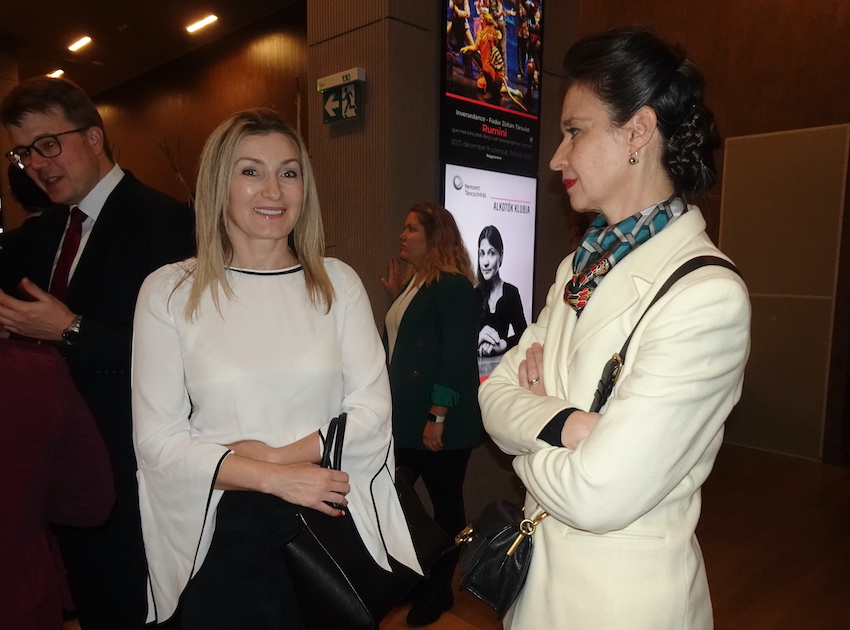
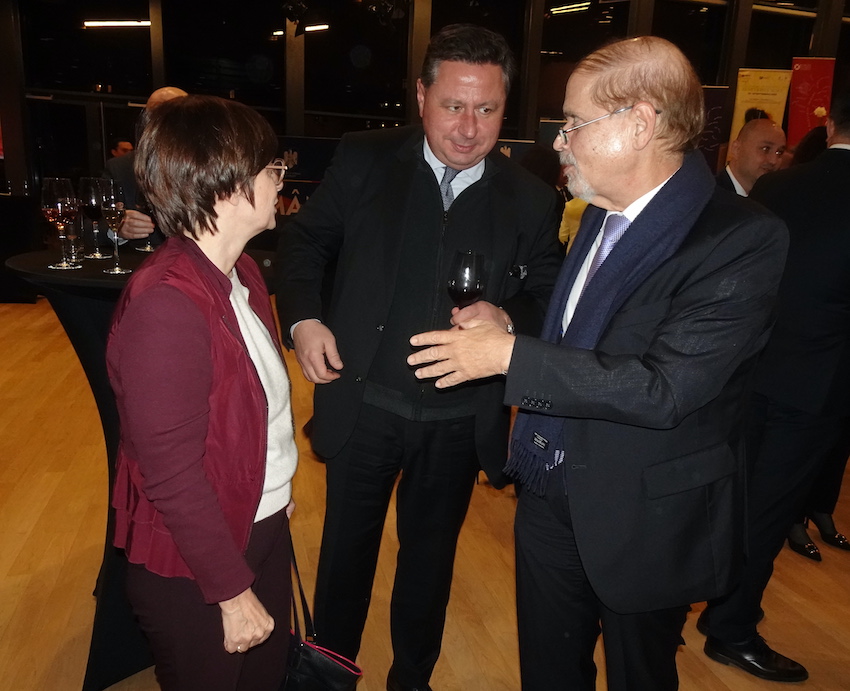
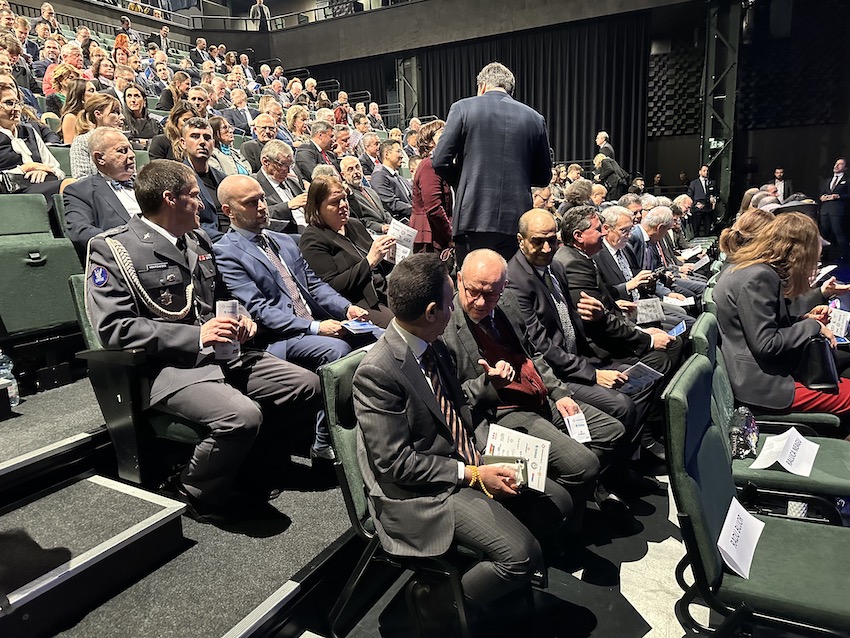
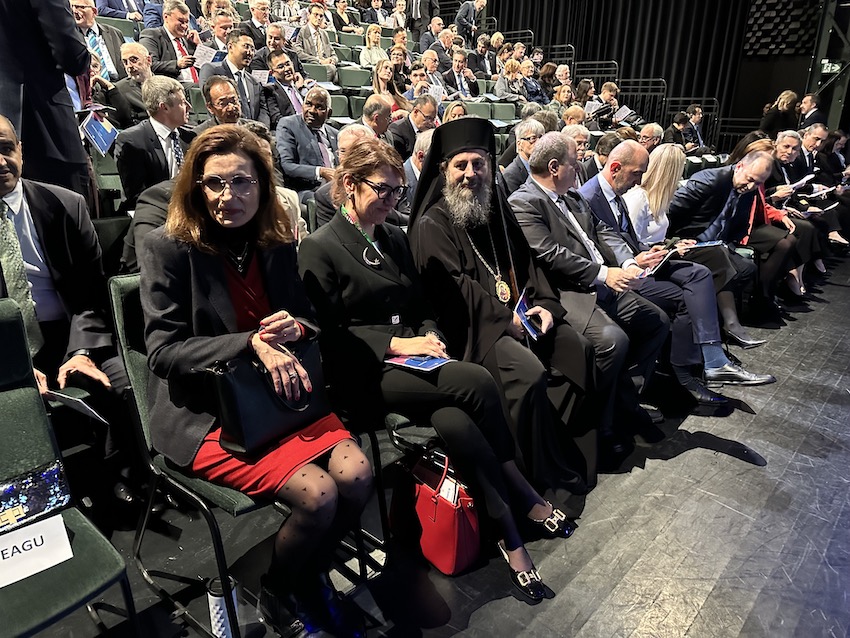
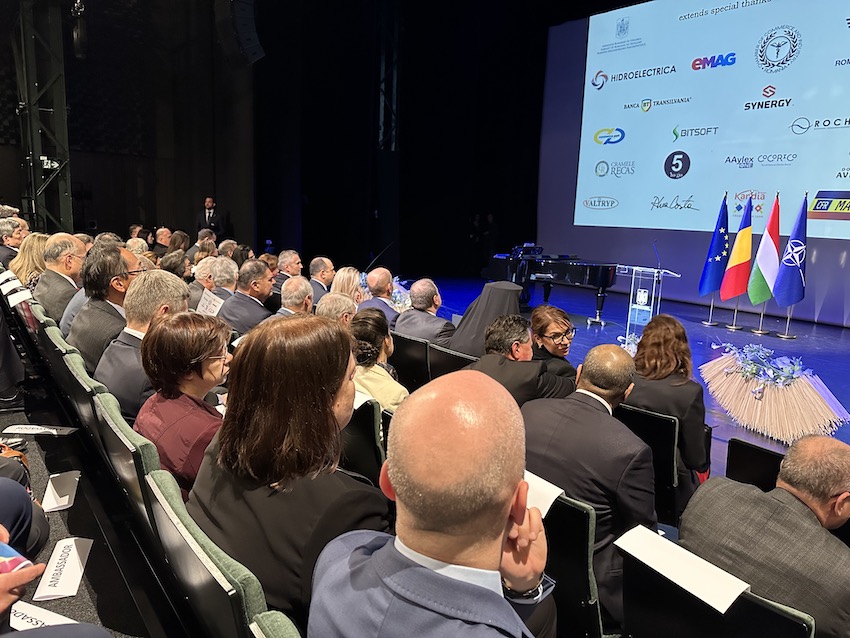
The official proceedings commenced on the stage decorated with the Romanian colours and symbols, resonating the national anthems of Romania, Hungary and the European Union,

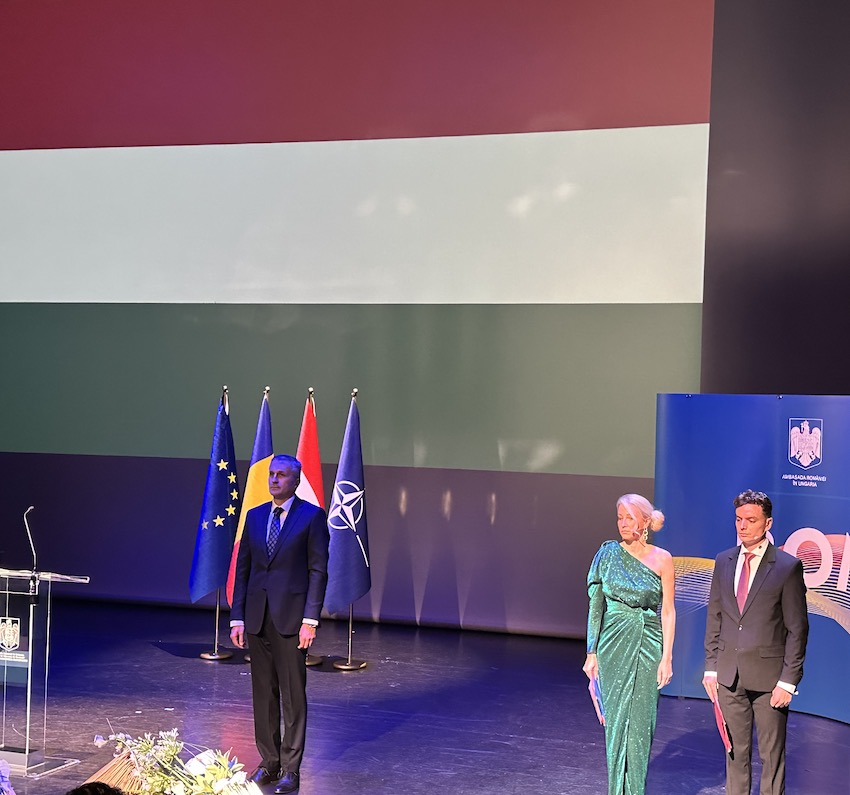

and followed by the address of H.E. Mr. Gabriel Șopandă, Ambassador of Romania to Hungary to the audience:
“Your Excellencies, Representatives of the Diplomatic Corps, Ladies and Gentlemen, Welcome to the celebration of the National Day of Romania in Budapest!
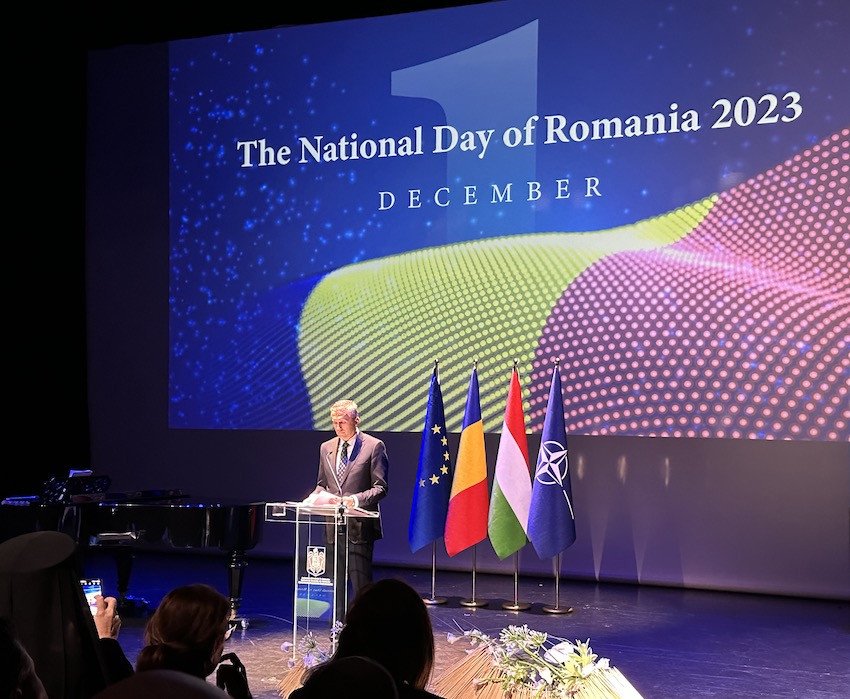
The National Day is a symbolic landmark of our solidarity facing all the difficulties we have come across as a nation, and that we have overcome and will continue to overcome trusting our own strength, the common efforts and with confidence in the future we are building together.
The National Day, honoured by all Romanians on the 1st December, recalls the historical moment of achieving Romania’s national unity and the dawn of a solid commitment to promote good neighbourly relations and the international law that are sound warrantees for peaceful bilateral and international cooperation.
Thus, Romania has constantly pursued the active involvement in international and regional organisations, as they are fundamental cooperation formats. I would recall the important work of Nicolae Titulescu and Vespasian Pella within the League of Nations, the essential contributions of the Romanian diplomats within the UN, as well as during the negotiation of the Helsinki Final Act (1975).
Unlike previous difficult moments in modern history, Romania is not currently facing troubles and challenges in isolation. Today, our country is part of the most powerful collective security alliance, NATO, which provides a security shield for one billion people. Next year, Romania will celebrate 20 years of NATO membership, the same year the North Atlantic Treaty Alliance turns 75.
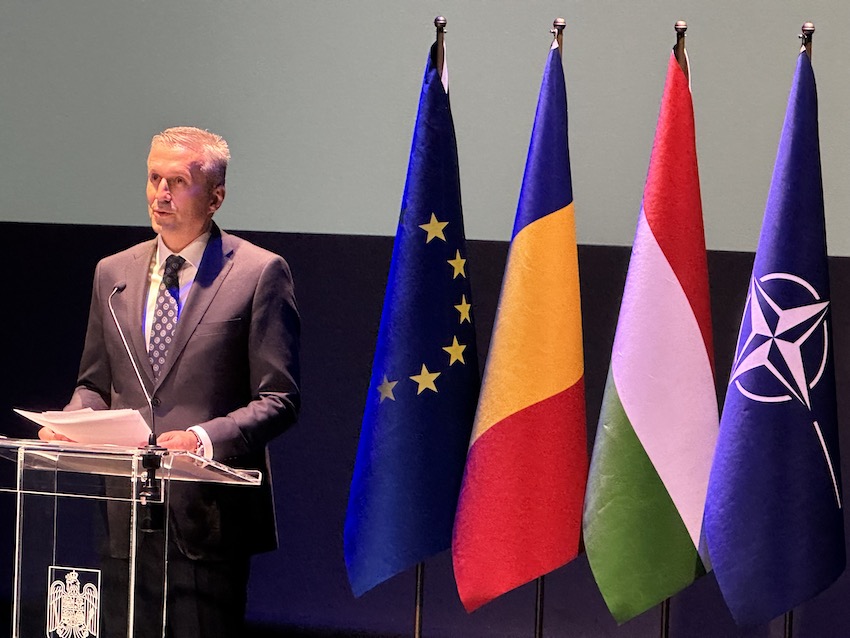
At the same time, Romania is part of the most visionary and dynamic union of sovereign states, the European Union, an area of shared values, democratic rights, prosperity and culture.
The Russian Federation’s war of aggression against Ukraine, which has unprecedentedly affected the European and Euro-Atlantic security as well as the global security environment, proves the dramatic importance of supporting the Republic of Moldova, Ukraine and Georgia in their European aspirations.
Our country pays special attention to the Eastern Flank, and the message conveyed to all partners and allies shows Romania’s firm and constructive commitment to security in the Black Sea region and to strengthening NATO’s Eastern Flank, especially its southern area. Romania plays a part in the efforts of the European Union, NATO, the UN, as well as within bilateral cooperation formats in order to counter foreign actions of information manipulation and interference, including disinformation.
Romania has thoroughly assumed its obligations as a member state of the European Union and of the North Atlantic Alliance. Romania’s strategic relevance has attained core importance for strengthening resilience in the region, after more than a year and a half since the Russian Federation started the war of aggression against Ukraine. As a confirmation of the sound commitment to international rule-based order, our candidate, Mr. Bogdan Aurescu, was recently voted to be the first judge from Romania to the International Court of Justice.
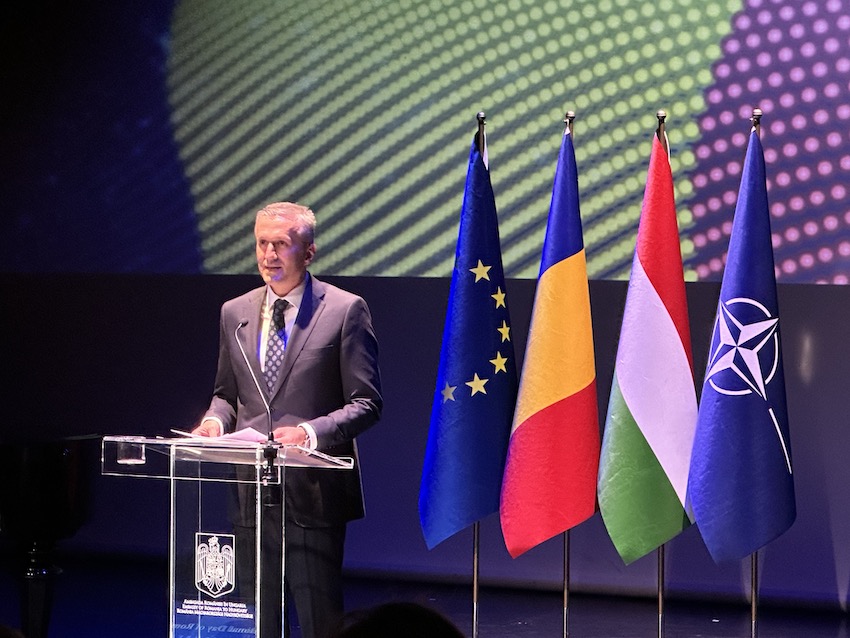
Romania’s accession to the Schengen area remains a major priority for the upcoming period, and we will continue to pay particular attention and to strive through all political and diplomatic channels to achieve this objective. Romania’s accession to the OECD remains not only a major foreign policy objective, but also a strategic country objective. It is essential to pursue the accession process, an endeavour that will require a transformation or adjustment of domestic policies, practices and legislation in several areas.
Bilaterally, in accordance to the objective of intensifying the dialogue between Romania and Hungary, President Klaus Iohannis paid an official visit to Budapest this autumn and, along with the President of Hungary, marked another stage towards a mutually beneficial pragmatic cooperation.




In the energy field, contacts at ministerial level, both in bilateral and regional formats, have become a new reality as actors are concerned with identifying energy resources required for a strategic diversification. In a constantly changing security and geo-economic environment, diversifying connectivity is a vital element. In 2023, Romania and Hungary signed three Memorandum of Understanding (MoUs) to increase the number of road connections.
The bilateral cooperation between our two states is also catalysed by the regional initiatives. I would bring up two examples, the Bucharest 9 format and the Three Seas Initiative, the former dealing with digital connectivity projects, besides the ones in the fields of energy and transportation. Bilateral trade remains at a high level after the record volume of 15 billion euros in 2022. Romania and Hungary rank among the top three – five commercial partners of one another, with regard to both imports and exports.
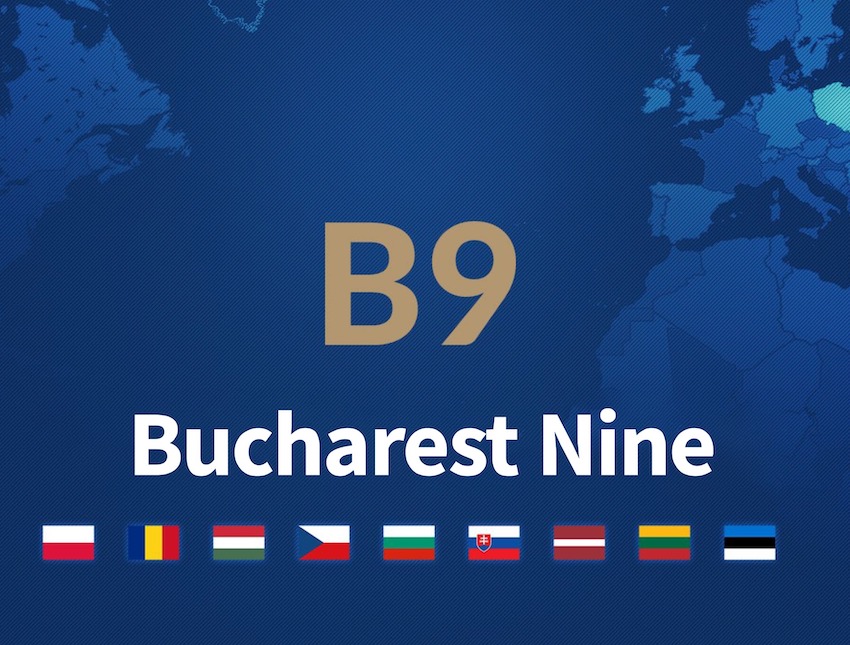

The historical Romanian community in Hungary continues to be a bridge between the two states, although the 2022 census has shown an important decrease in the number of Romanian ethnics. Preserving the Romanian language and specific cultural features is the guiding line for Romania’s support. In order to reach its objective, this action also requires a common understanding in the two states and an ongoing effort from the Romanian community as well. The common interest exists, and the availability to identify it leads towards the mutual benefit. As President Klaus Iohannis said during his visit to Hungary: ‘Romania aims for a dynamic bilateral dialogue in order to develop and deepen our relations in the interest of the citizens of both states, irrespective of their ethnic origin’.
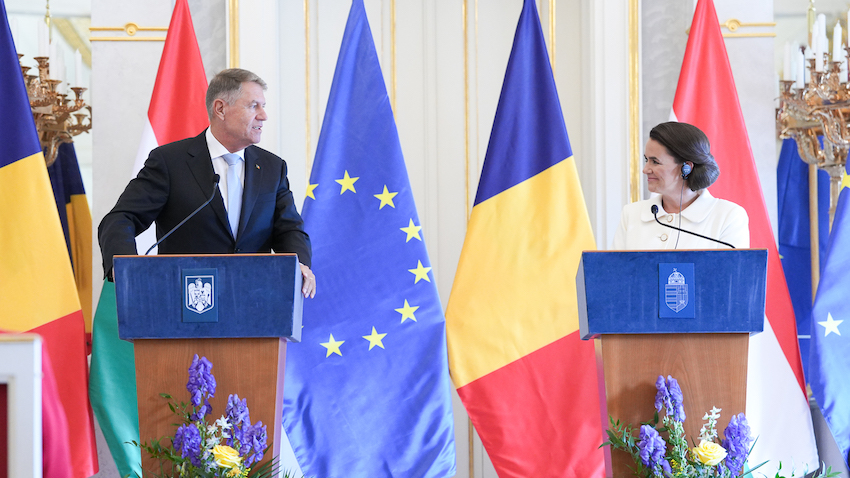
This year, Romania and Hungary have shared the joy of praising the national cultural heritage within the common, yet diverse space of the EU by receiving the title of European Capital of Culture for Timisoara and Veszprém, alongside Elefsina in Greece.
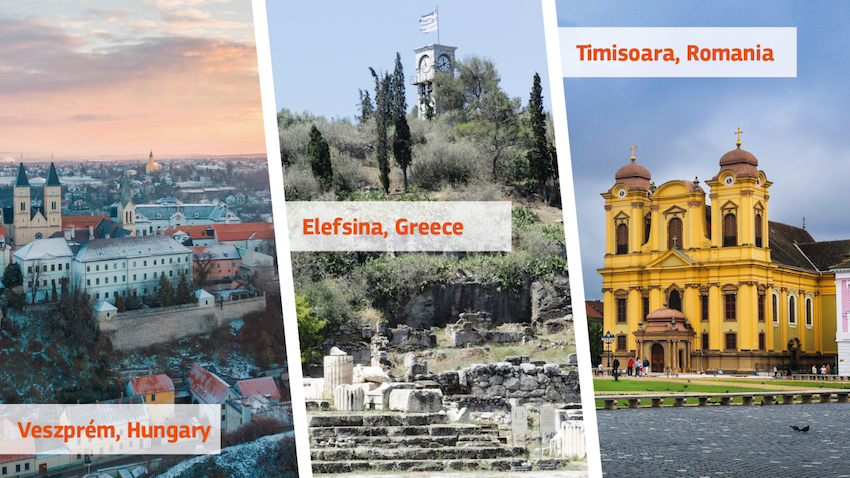
Dear Guests,
History has taught us several times the lesson that ‘the right of the might’ has caused confrontations and catastrophes on a global scale. It took the sacrifices of generations for the world to rise from ruins and to build ‘the might of the right’, however the present still proves that not all international actors have learnt this lesson. The current international order is the result of a historical process, and the attempts to suddenly and brutally change it, in the defiance of international law, endanger the present and the future of several generations.
Russian Federation’s war of aggression against Ukraine, started on 24th February 2022, has compromised those decades dedicated to building peace and has radically changed the European security environment on the entire Eastern Flank. Romania stands in full solidarity with the people and the government of Ukraine in their heroic defence of the country, helping Ukraine to uphold its fundamental right to self-defence. Our common response to the aggression must continue to be firm, based on solidarity and unity.

On 7th October 2023, Hamas’s terrorist attack on Israel has caused another major crisis. Romania strongly condemns all forms of terrorism and stands by the State of Israel and its citizens while exercising the sovereign right to self-defence, in line with international humanitarian law. At the same time, Romania regrets the high number of casualties and the worsening of the humanitarian situation, pledging its support for humanitarian assistance and asking for the release of hostages. However, in order to achieve a lasting peace, it is necessary to resume negotiations. Romania pleads for a political horizon to solve the crisis and for the return to the solution based on the coexistence of two states, the only chance to guarantee security and stability in the region.
Together with the Embassy team, the colleagues from the Consulates General in Szeged and Gyula, as well as from the Romanian Cultural Institute, I am honoured to represent Romania in Hungary.
Thank you for joining us this evening, to celebrate together the National Day of Romania! I am also grateful to our sponsors whose generosity made this event possible.”
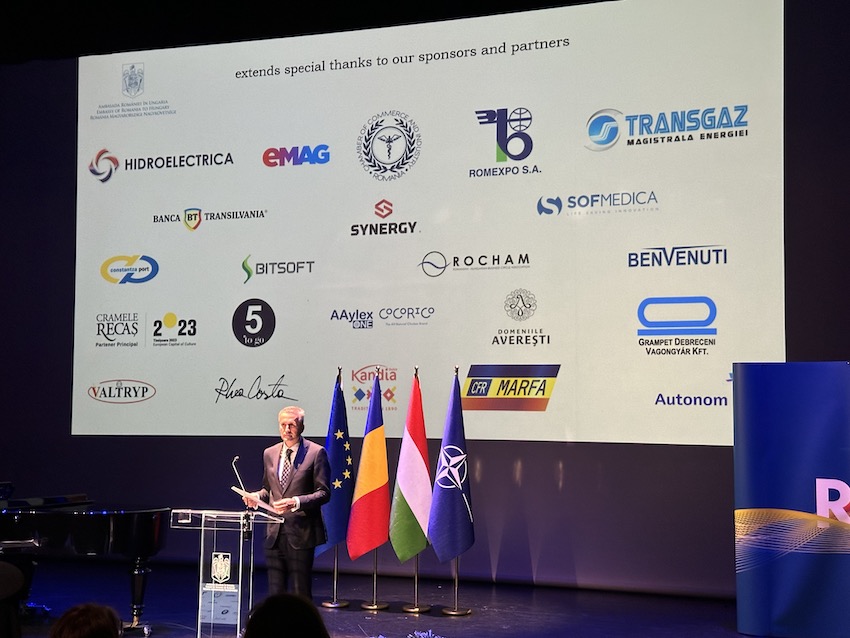
The official part of the event was followed with a remarkable concert by two exceptional Romanian artists: Sinziana Mircea (piano) and Alexandru Tomescu (violin), who in 2007 received the right to play the Stradivarius Elder Voicu 1702 violin, (the property of the Romanian State), which was used during the concert and contributed to a unique and captivating performance. The duo’s repertoire included a selection of famous pieces from Jules Massenet, Fritz Kreisler, George Enescu, Béla Bartók and Camille Saint-Saëns, showcasing the versatility and skill of the artists, which earned a standing ovation from the audience, impressed by the musicians’ phenomenal techniques, virtuosity and expressive style.
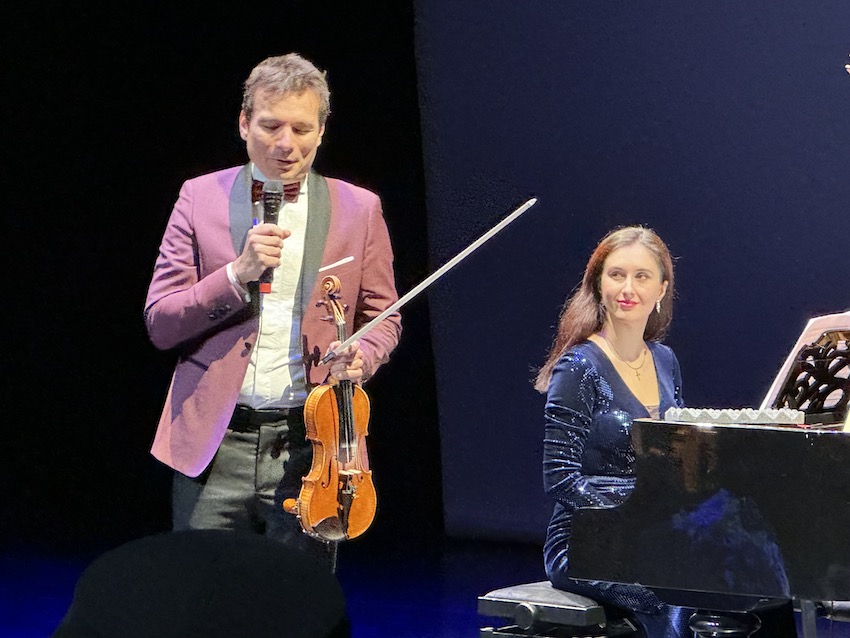

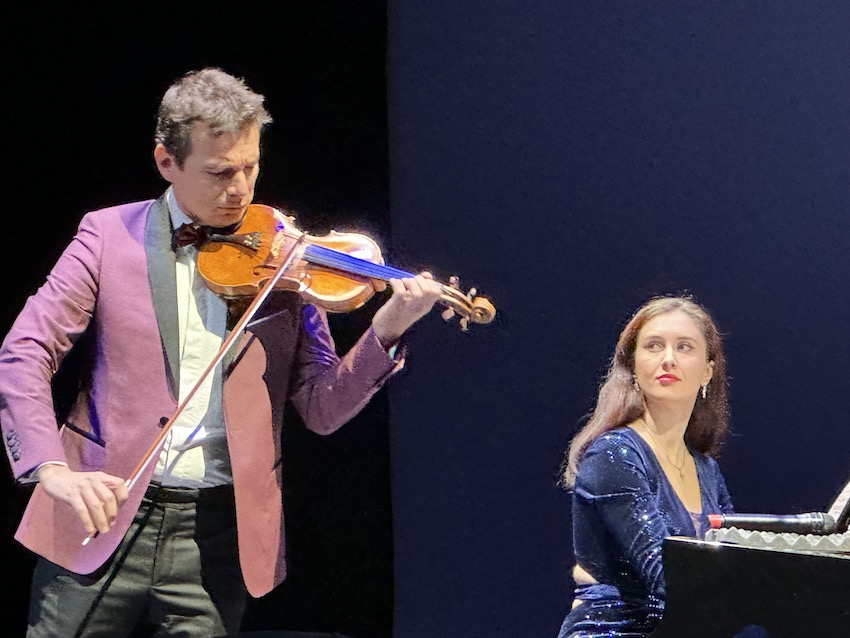

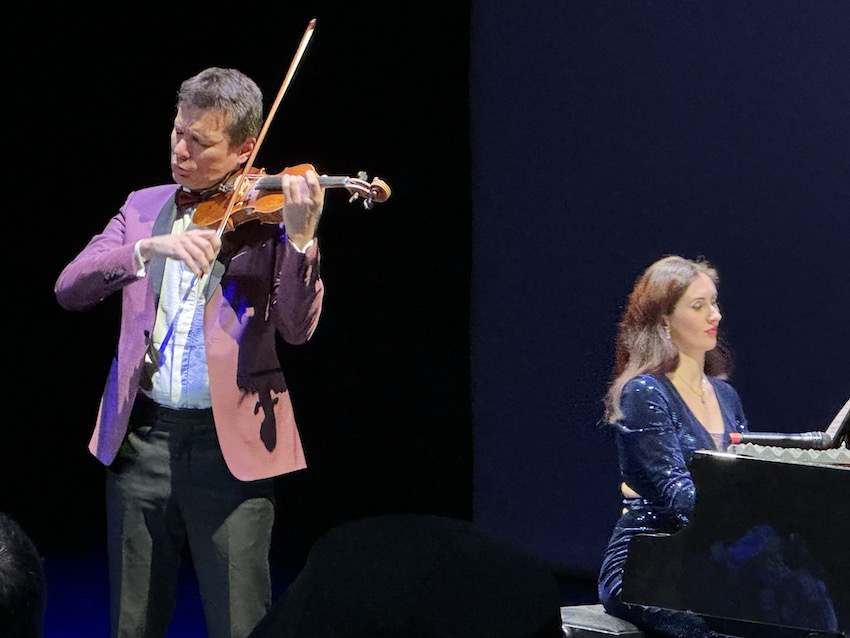
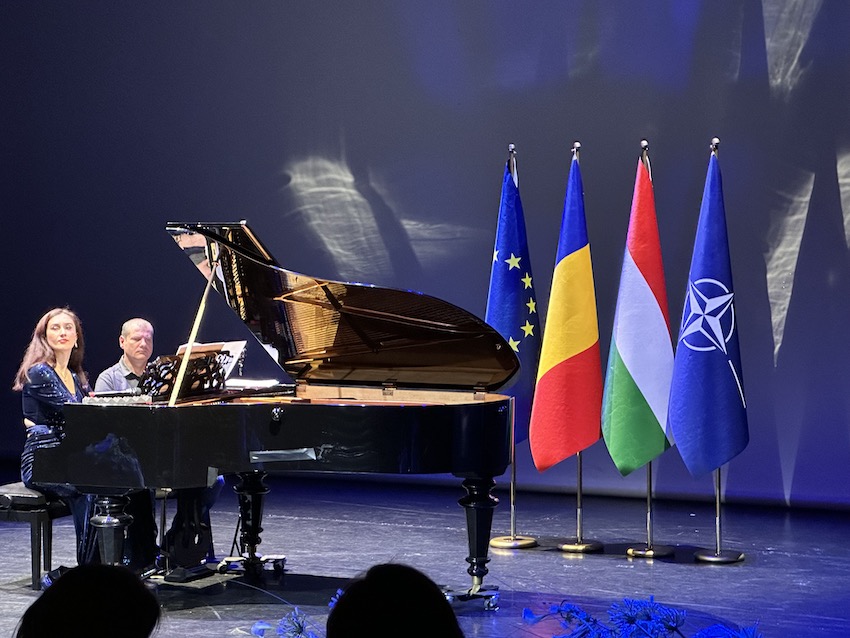

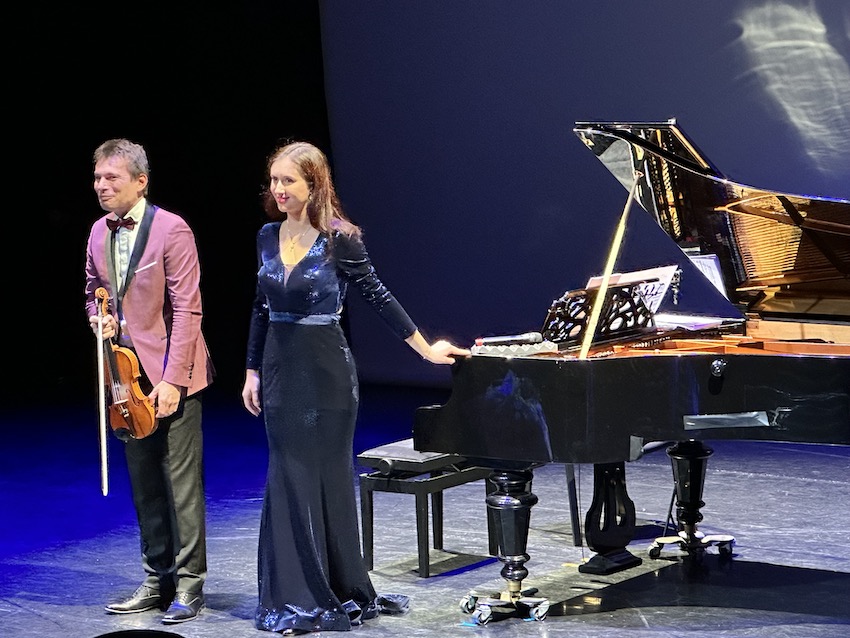
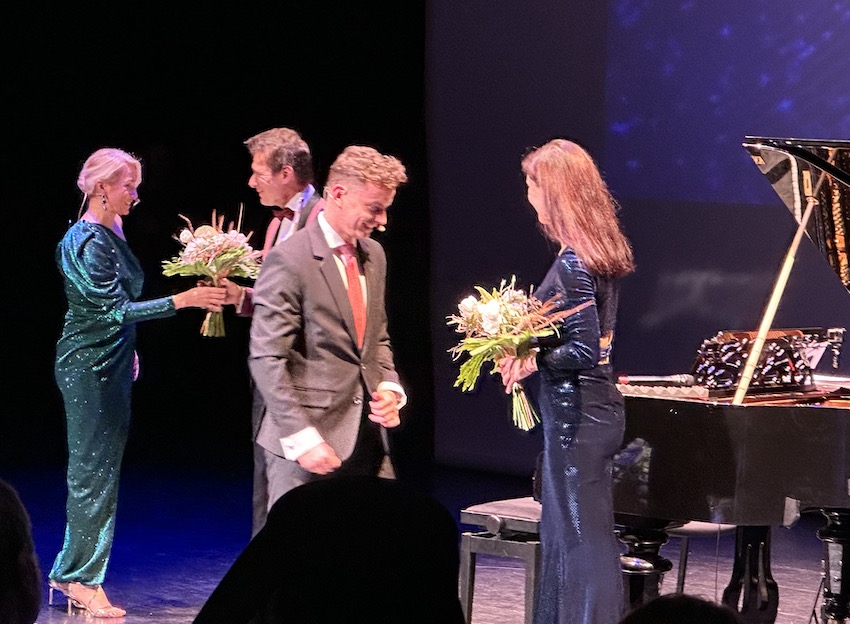
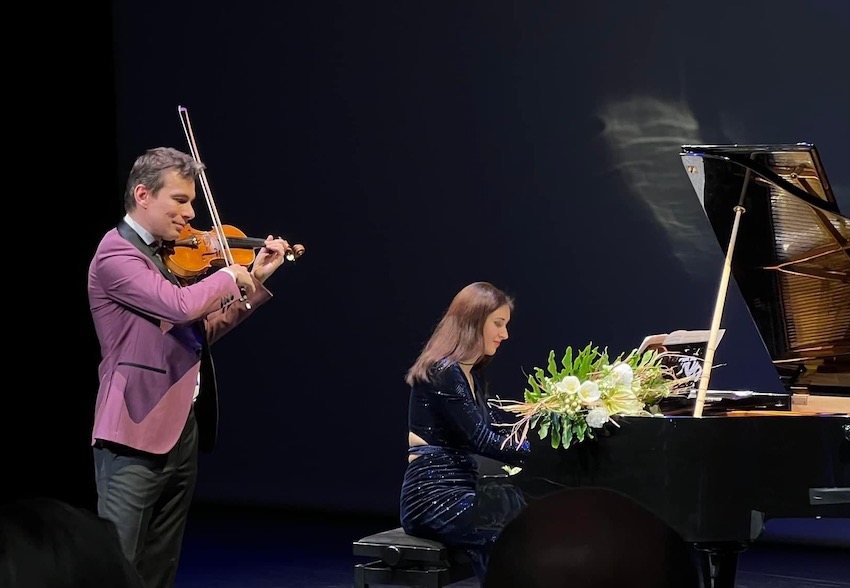

After the concert, the evening ended with a reception in the hall of the Dance Theatre, where the guests could taste various Romanian and international specialties, enjoying the culturally rich experience and friendly atmosphere.




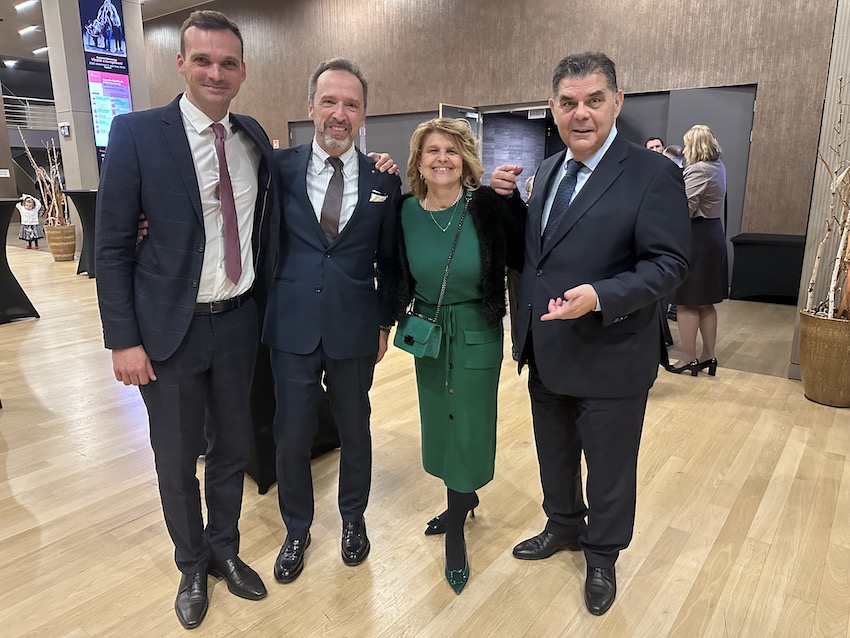



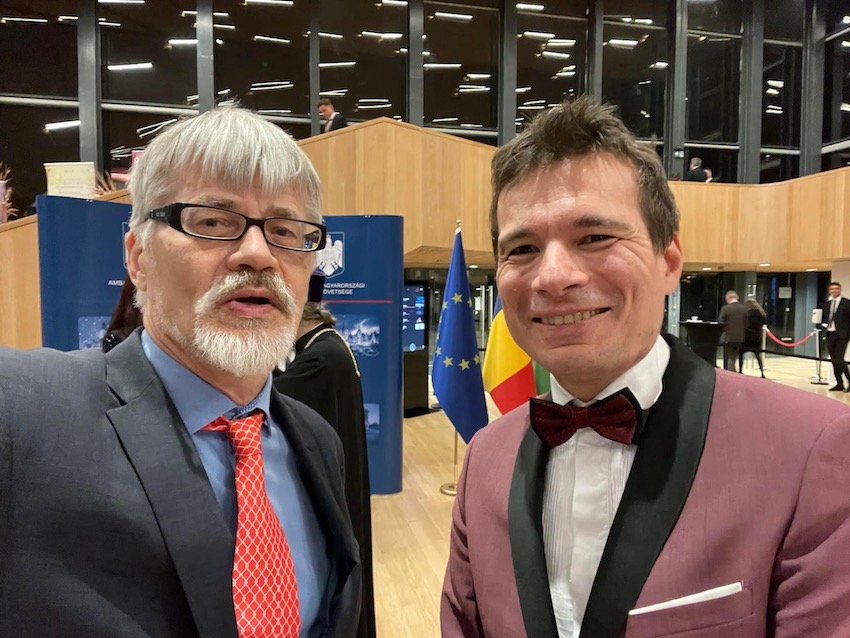
Source: Embassy of Romania in Budapest
Photos by the National Dance Theatre, Facebook of President Katalin Novák, European Capitals of Culture and DPA

